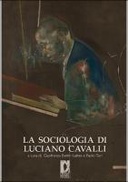Explore

La sociologia di Luciano Cavalli
0 Ungluers have
Faved this Work
Login to Fave
The Faculty of Political Science of Florence – the oldest school of political and social science in Italy, founded in 1875 by Carlo Alfieri and named after his father Cesare – has a tradition of study that is widely recognised, even abroad, to which the cultural project of this series is related. The first book is dedicated to the research activity carried out by Luciano Cavalli and the profound traces that it has left on Italian and European sociology. Now Professor Emeritus, Luciano Cavalli taught and worked at the "Cesare Alfieri" for many years from 1966 on. Around his commitment as a "pioneer" of sociology in Italy he mustered an array of sociologists, active in different universities, many of whom have opened up new frontiers within the discipline and have successfully cultivated a dialogue with the other social sciences, as the contents of the book clearly illustrate. This extensive collection of essays offers a clear image of the fertile sociological work that burgeoned around the scientific commitment of Luciano Cavalli and was often generated by his own action of cultural stimulus. The three sections into which the book is divided – Portrait of an intellectual, The sociology of political phenomena and Sociological theory and social change – address issues of great relevance to the contemporary sociological debate. The rapport between the democratic construction of the modern State and the role and functions of the leadership, the relations between citizens and leaders, the various forms of the democratic institutional structures and the transformations of political culture are interwoven with the Neo-Weberian interpretation of the charisma theory that Cavalli masterfully proposed. Also particularly significant and topical are the critical reflections made by writers whose scientific itinerary has run parallel to that of Cavalli for decisive stretches, and who were and are bound to his teaching when they tackle arguments such as the changes in urban life, immigration and the problems of economic, political and social development in our times.
This book is included in DOAB.
Why read this book? Have your say.
You must be logged in to comment.
